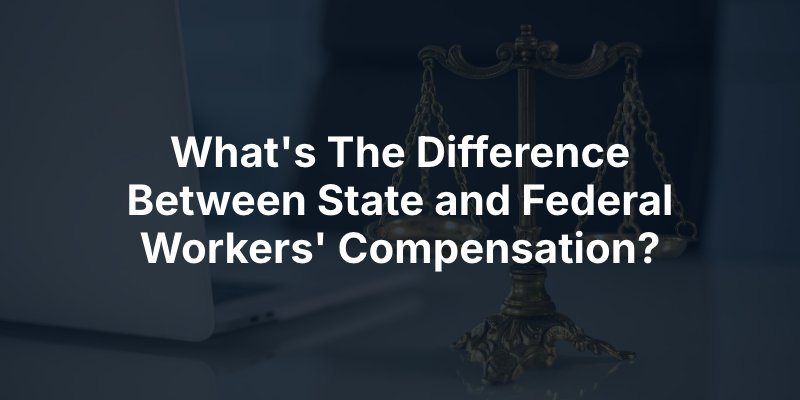Workers’ compensation provides financial and medical benefits to employees injured on the job. However, the system that governs these benefits differs depending on whether a worker falls under state or federal jurisdiction. An experienced Orange County workers’ compensation attorney can help injured employees navigate these complexities and pursue the full benefits they’re entitled to.

California’s workers’ compensation system applies to most private-sector and public employees within the state. The Division of Workers’ Compensation (DWC), under the California Department of Industrial Relations, administers this system. California law requires all employers to carry workers’ compensation insurance, even if they have only one employee. Key features include:
Claims are typically filed directly with the employer’s insurance carrier. Disputes are handled by the Workers’ Compensation Appeals Board.
The federal workers’ compensation system covers specific categories of employees, particularly those working for the federal government or in federally regulated industries. These benefits fall under different laws, such as:
Federal workers’ compensation programs are typically administered by the U.S. Department of Labor. These claims follow federal guidelines and processes.
California’s DWC administers state claims. The U.S. Department of Labor handles federal claims.
State law covers most private-sector workers. Federal law applies to federal employees and workers in specialized roles.
California workers typically report injuries to their employer and work through the state’s system. Federal workers file claims with federal agencies using different forms and procedures.
California disputes go through the Workers’ Compensation Appeals Board. Federal disputes may go through the Employees’ Compensation Appeals Board or administrative hearings.
Benefit amounts, durations, and eligibility standards may differ. For example, FECA pays 75 percent of the salary for employees with dependents, while California’s temporary disability benefits are based on two-thirds of pre-injury wages, subject to weekly caps.
Determining whether you qualify for California state workers’ compensation or a federal program depends on who employs you and the nature of your work. The key factor is your employer’s status—not the location where you perform the work. If you are unsure, review your employment documents or consult your HR department. Federal employees will typically receive official government employee identification, pay stubs from a federal agency, and guidance on federal benefits enrollment. Private-sector workers and public employees at the state or local level generally fall under California’s jurisdiction. If you’re still uncertain or need help with a claim, contact Aegis Law Firm today for a free consultation with an experienced Orange County workers’ compensation lawyer.